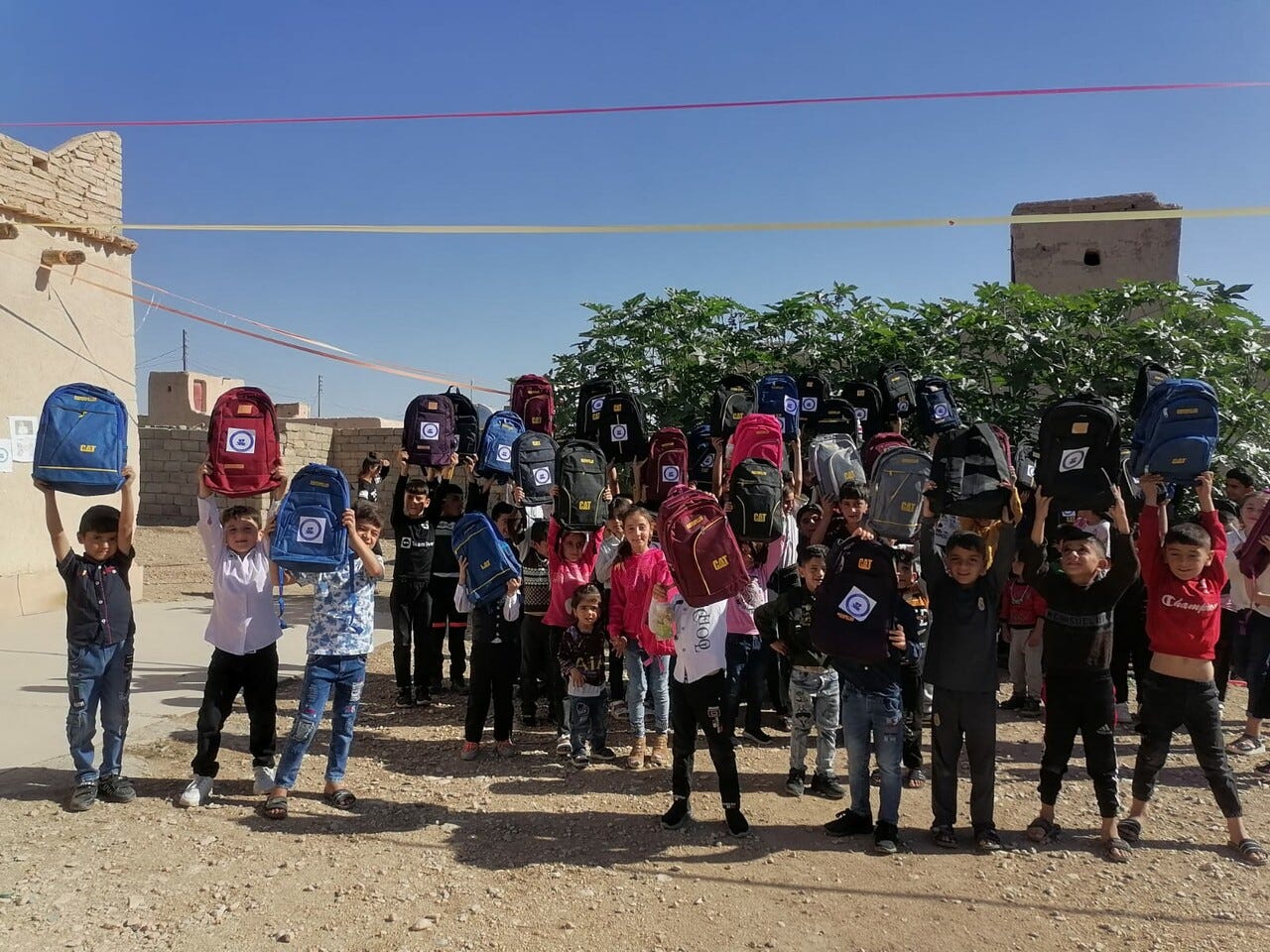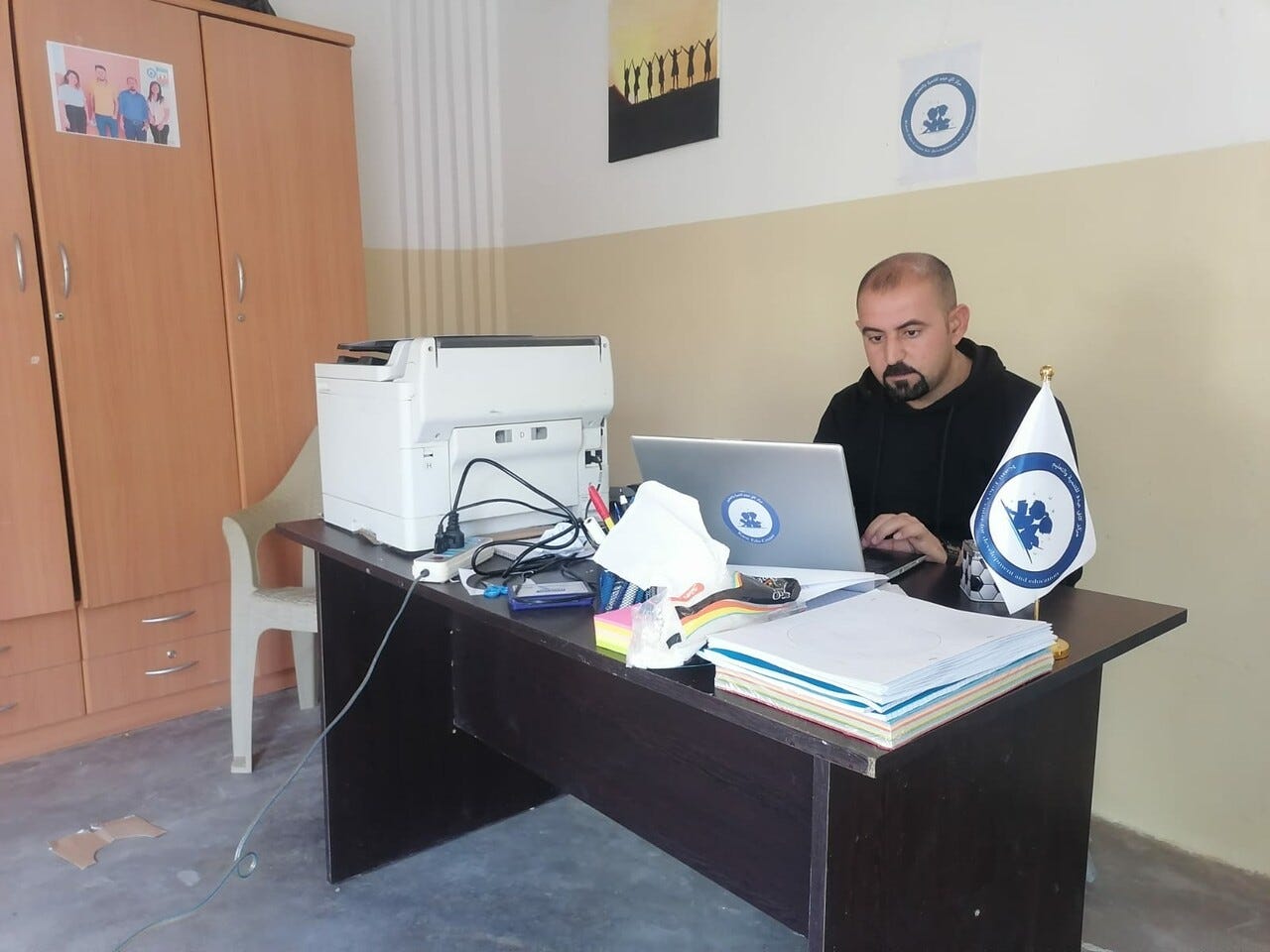Crowded Classrooms and Teacher Shortages: Finding a Solution in Sinjar
In an area where schools are scarce, the Kani Center for Development and Education offers a glimmer of hope
The best part of Hawas Samir Hasso’s day is sitting down with his students for their conversation and dialogue classes. “It allows me to relive my own childhood through the questions they ask and their unique perspective on life,” he says. Many of the eight- to-12 year-olds he teaches arrive at the Kani Center for Development and Education in Sinjar unable to read and write, their education interrupted by years of conflict and displacement.
Learning facilities in this region of Iraq are scant. Where Hasso, 31, lives, there is just one small primary school and classes number 60 students or more. “The education level around here is very poor, so I decided to start a learning center to open their minds and help them recover from years of poverty and war,” he says.
Sinjar, which sits in the Nineveh governate in northern Iraq, is one of the areas that suffered most from ISIS control when the militants overran Mosul and surrounding areas in 2014. It was here that ISIS carried out its brutal genocide against the Yazidi minority, killing, enslaving and torturing thousands of men, women and children in their Sinjar homeland.
This is the context that the children who attend the Kani Center have grown up with, their lives characterized by conflict and violence. Hasso wants to intercept this difficult start and help disadvantaged youngsters in Sinjar find a better future. “These children today will be the future of tomorrow, so we need to take care of them and educate them properly.”
He founded the center in June 2021 and has recently received an Innovation Hub grant from Ideas Beyond Borders, which he’s using to furnish the classrooms with stationery supplies, provide snacks, juice and clean water throughout the day and cover electricity bills. “This is the first type of support these kids have received,” Hasso says.
Around 80 percent of public infrastructure and 70 percent of civilian homes in Sinjar city were destroyed by ISIS, and an estimated 200,000 displaced residents have yet to return home. Government funding for the area is meager, and many Sinjaris feel overlooked and neglected.
“There has been very little progress in Sinjar since the war ended - in many ways the situation is getting worse. There’s a glaring need for projects like this to rebuild the social fabric of the city and give people the means to live ordinary lives. Only then can the community begin to recover from all they’ve endured,” says Faisal Saeed al Mutar, President of Ideas Beyond Borders.
Hasso believes that education is one of the first roads to recovery for Sinjar and its people, but the problems have deep roots. Growing up, he was one of the only children from his village who attended school, traveling to another area to learn because there was no school in his village. “From the beginning of the Iran-Iraq war (1980-88), education began to deteriorate, and the teacher's salary decreased dramatically, which affected the quality of education and the students,” he says.
More than two decades later, the same problems persist, with crowded classrooms, severe teacher shortages and a lack of investment in the education sector. “The whole of Iraq suffers from this problem. That is why I opened this center to teach them at an early age so that they do not go through what I went through,” he says.







